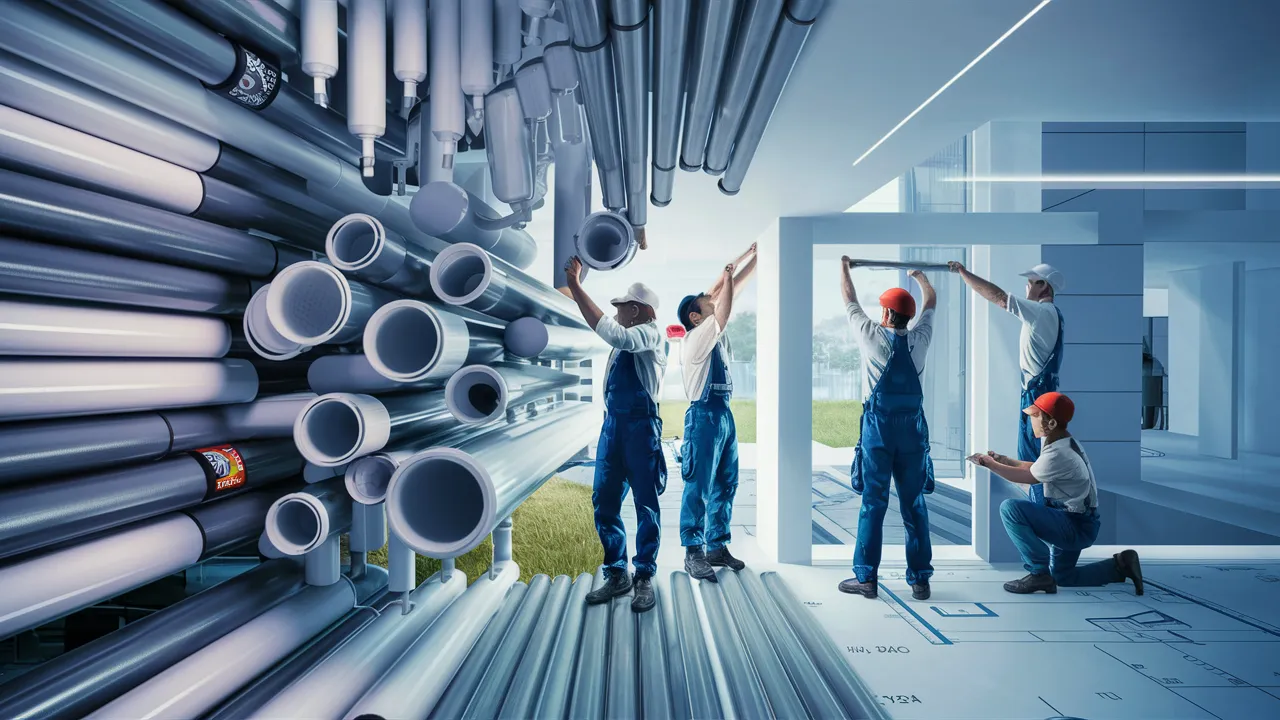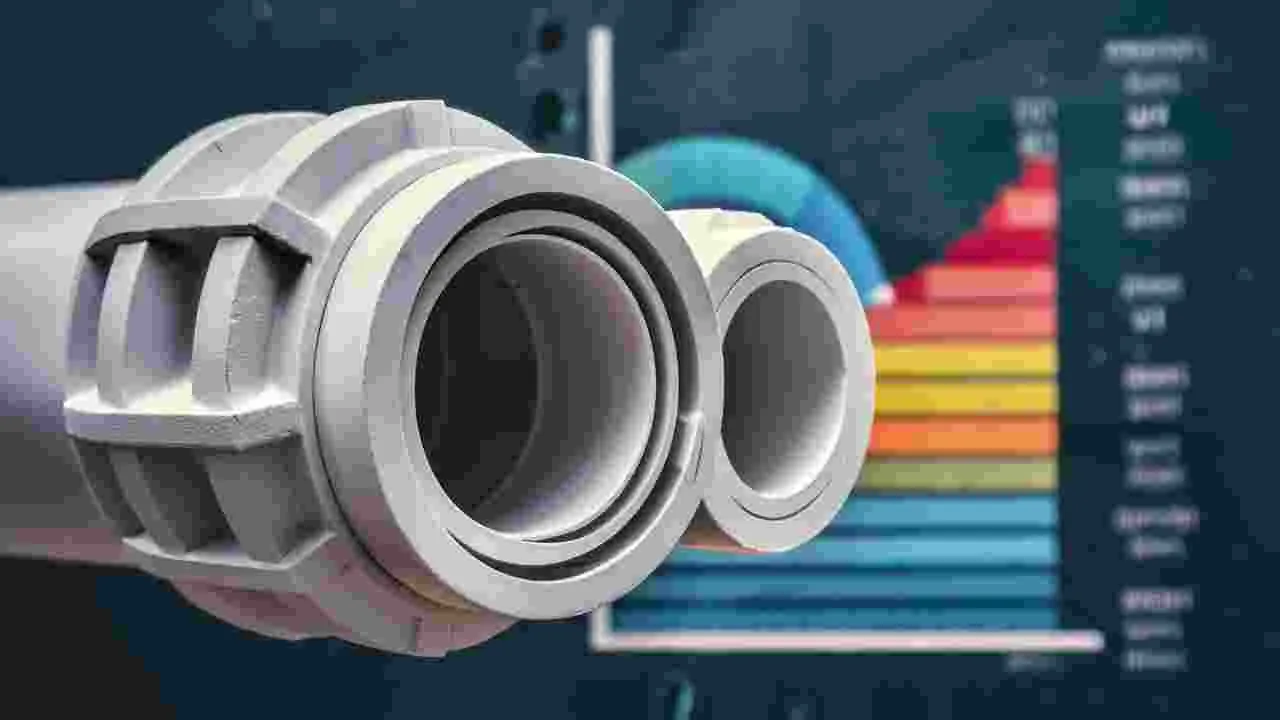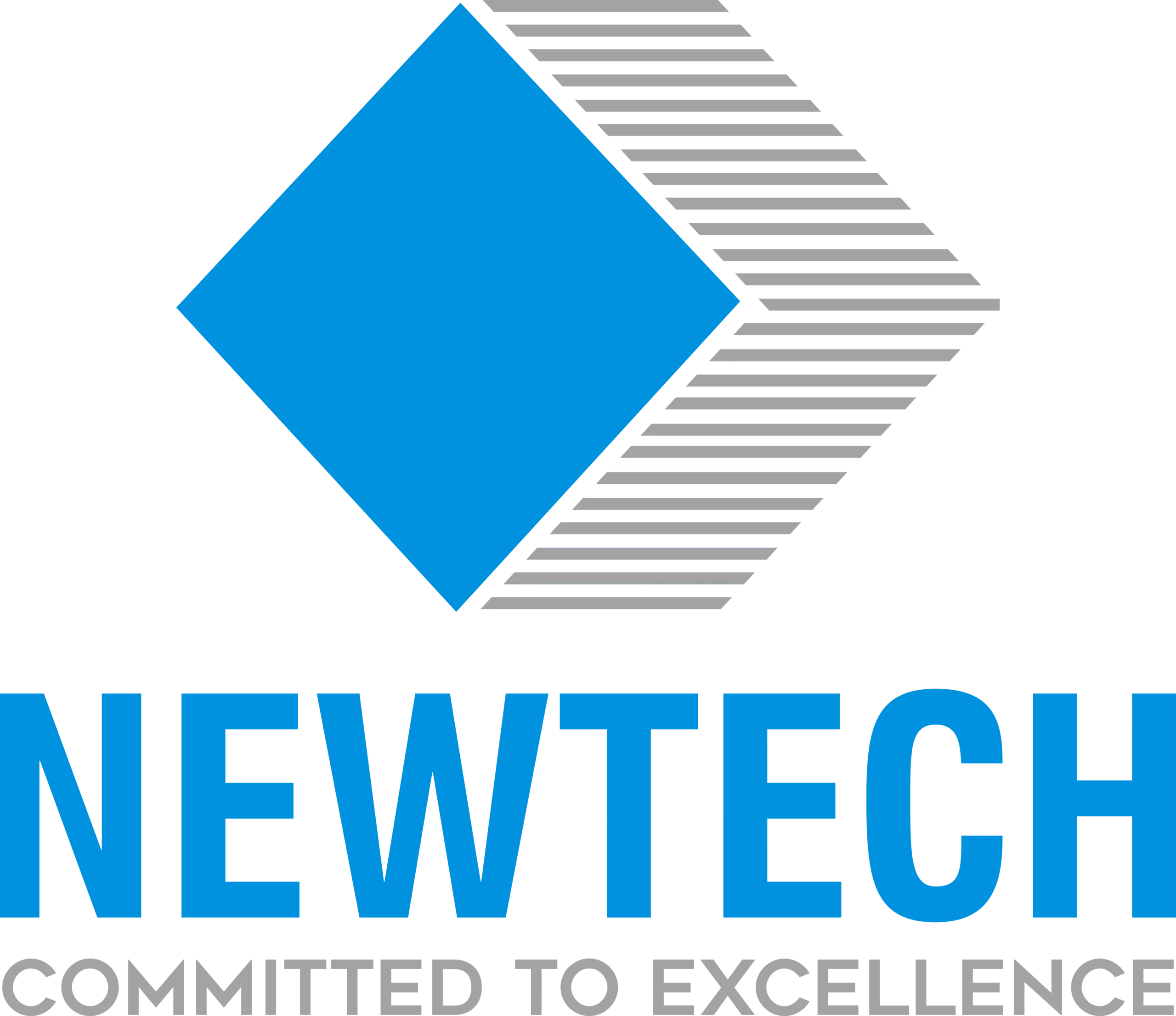UPVC pipes, known for their durability and versatility, offer numerous benefits in modern plumbing systems. They excel in durability, corrosion resistance, and cost-effectiveness, with attributes such as lightweight installation, low maintenance, and environmental sustainability. From thermal insulation to UV resistance, UPVC pipes provide a comprehensive solution for diverse plumbing needs.
Unveiling the Benefits of UPVC Pipes
Overview of the Benefits of UPVC Pipes
UPVC pipes, short for unplasticized polyvinyl chloride pipes, have emerged as a cornerstone of modern plumbing systems. Understanding the manifold advantages they offer is pivotal for professionals and homeowners alike.

Durability of UPVC Pipes
UPVC pipes boast inherent robustness owing to their composition and manufacturing process. When compared to conventional materials like metal or concrete, UPVC pipes demonstrate superior longevity and resistance against wear and tear. Several case studies underscore their remarkable durability, showcasing decades of service without degradation.
Corrosion Resistance
One of UPVC’s standout attributes is its exceptional resistance to chemical corrosion. Unlike metal pipes that succumb to rust and erosion in corrosive environments, UPVC pipes remain unscathed. Real-world examples abound, with UPVC pipes enduring harsh conditions in industrial settings without compromise.
Cost-Effectiveness
An economic analysis reveals the cost-effectiveness of UPVC pipes. Compared to alternatives, UPVC pipes offer substantial savings over their lifecycle, thanks to reduced maintenance and replacement expenses. The upfront investment in UPVC pipes translates into long-term financial gains.
Lightweight and Easy Installation
The lightweight nature of UPVC pipes streamlines installation processes, minimizing labour costs and installation time. This characteristic appeals to both professionals and DIY enthusiasts, facilitating hassle-free plumbing projects.
Low Maintenance Requirements
UPVC pipes demand minimal maintenance, translating to significant savings in time and resources for property owners. Simple upkeep practices ensure optimal performance, prolonging the lifespan of UPVC plumbing systems.
Environmental Sustainability
A discourse on UPVC pipes wouldn’t be complete without addressing their eco-friendly attributes. Compared to traditional materials, UPVC pipes contribute to sustainability efforts, aligning with green building initiatives and earning LEED certification.
Versatility in Applications
The versatility of UPVC pipes extends across various settings, from residential to industrial applications. Their adaptability transcends traditional plumbing uses, finding innovative applications in diverse sectors.
Chemical Resistance
UPVC pipes exhibit remarkable resistance to a myriad of chemicals, making them indispensable in industries like agriculture, manufacturing, and healthcare. This attribute ensures the safety and reliability of chemical handling systems.
Thermal Insulation Properties
The thermal insulation capabilities of UPVC pipes enhance energy efficiency in hot and cold water systems. By minimizing heat loss, UPVC pipes help maintain water temperature, contributing to energy conservation efforts.
Smooth Flow Characteristics
UPVC’s smooth interior surface ensures uninterrupted water flow, reducing the likelihood of clogs and obstructions. This characteristic not only enhances operational efficiency but also lowers pumping costs.
Noise Reduction
UPVC pipes’ noise-absorbing properties mitigate water hammer and pipe noise, enhancing comfort within buildings. The reduction in noise pollution fosters a more pleasant living and working environment.
Fire Resistance
UPVC pipes exhibit inherent fire-retardant properties, complying with stringent building codes and regulations. This feature enhances safety measures in both residential and commercial structures.
Flexibility and Adaptability
The flexibility of UPVC pipes enables them to accommodate ground movement, making them ideal for earthquake-prone areas and expansive soils. This adaptability minimizes the risk of pipe failures and subsequent repairs.
Longevity and Service Life
UPVC pipes boast an extended service life, attributed to factors like material composition and manufacturing standards. Property owners and developers benefit from their durability, ensuring long-term investment value.
Hygienic Properties
UPVC pipes offer hygienic advantages, making them suitable for potable water systems and food processing facilities. Compliance with health and safety standards underscores their reliability in critical applications.
UV Resistance
UPVC pipes exhibit resistance to UV degradation, making them ideal for outdoor plumbing systems and exposed environments. This feature preserves their aesthetic appeal and structural integrity over time.
Compatibility with Other Materials
UPVC pipes seamlessly integrate with other piping materials through transition fittings and jointing methods. This compatibility facilitates retrofitting and upgrading existing systems with minimal disruption.
Regulatory Compliance
An overview of industry standards and regulations ensures compliance with UPVC pipes. Adhering to specific requirements for different applications and jurisdictions underscores the importance of selecting certified UPVC products.
Customer Testimonials
A compilation of testimonials from satisfied UPVC pipe users provides real-world evidence of their benefits. These testimonials span various industries and applications, reaffirming UPVC pipes’ reliability and performance.
Conclusion of Benefits of UPVC Pipes
In conclusion, the benefits of UPVC pipes are vast and undeniable. From durability to environmental sustainability, UPVC pipes offer a comprehensive solution for modern plumbing needs. Consider UPVC pipes for your next plumbing project and experience the myriad advantages they bring. Contact Newtech-pipes for further inquiries and assistance.
Key Benefits of UPVC Pipes
This guide explores the advantages of UPVC pipes, highlighting their merits for both professionals and homeowners.
Key Benefits:
- Durability and Corrosion Resistance: UPVC pipes boast exceptional longevity and resist wear, tear, and rust, even in harsh environments.
- Cost-Effective: UPVC pipes offer significant savings over their lifespan due to lower maintenance and replacement costs.
- Lightweight and Easy to Install: Their lightweight nature simplifies installation, reducing labor and time.
- Low Maintenance: UPVC pipes require minimal upkeep, ensuring long-term system performance.
- Environmentally Sustainable: UPVC pipes contribute to green building initiatives due to their recyclability and lower carbon footprint.
- Versatile Applications: They are suitable for various settings, from residential plumbing to industrial uses.
- Chemical Resistance: UPVC pipes handle a wide range of chemicals, making them ideal for diverse industries.
- Thermal Insulation: They help maintain water temperature, reducing energy consumption.
- Smooth Flow and Noise Reduction: The smooth interior minimizes clogs and noise, enhancing efficiency and comfort.
- Fire Resistant and Flexible: UPVC pipes comply with fire safety codes and can accommodate ground movement.
- Long Service Life and Hygienic: They offer extended durability and are suitable for potable water systems.
- UV Resistant and Compatible: UPVC pipes resist UV degradation and integrate seamlessly with other materials.
- Customer Approved: Satisfied users highlight the reliability and performance of UPVC pipes across various applications.
In conclusion, UPVC pipes offer a comprehensive solution for modern plumbing needs, combining durability, cost-effectiveness, and environmental benefits.
As you plan your plumbing projects, consider the undeniable advantages of UPVC pipes – from their longevity and environmental sustainability to their versatility and ease of maintenance. Make the smart choice for your plumbing needs by opting for UPVC pipes from Newtech-pipes.
FAQs about UPVC Pipes
What are UPVC pipes?
UPVC pipes, also known as unplasticized polyvinyl chloride pipes, are a type of plastic pipe commonly used in plumbing systems. They are known for their durability, chemical resistance, and versatility in various applications.
What are the benefits of UPVC pipes?
UPVC pipes offer numerous benefits, including durability, corrosion resistance, cost-effectiveness, lightweight properties, low maintenance requirements, and environmental sustainability. They also boast excellent thermal insulation properties and smooth flow characteristics.
How do UPVC pipes compare to other materials?
Compared to traditional materials like metal or concrete pipes, UPVC pipes offer superior durability, corrosion resistance, and cost-effectiveness. They are lightweight, easy to install, and require minimal maintenance over their lifespan.
Are UPVC pipes suitable for all plumbing applications?
Yes, UPVC pipes are versatile and suitable for a wide range of plumbing applications, including residential, commercial, and industrial settings. They can be used for water supply, drainage, irrigation, and chemical handling systems, among other purposes.
Are UPVC pipes environmentally friendly?
Yes, UPVC pipes are considered environmentally friendly because they are recyclable and have a lower carbon footprint compared to other materials. They contribute to green building initiatives and can earn LEED certification for sustainable construction projects.
How long do UPVC pipes last?
UPVC pipes have a long service life and can last for several decades with proper installation and maintenance. Their durability and resistance to corrosion ensure reliable performance over time, making them a cost-effective choice for plumbing systems.
Are UPVC pipes safe for drinking water?
Yes, UPVC pipes are safe for use in potable water systems. They are manufactured using high-quality materials that comply with health and safety standards, ensuring the purity and safety of drinking water.
Can UPVC pipes withstand extreme temperatures?
Yes, UPVC pipes have excellent thermal insulation properties and can withstand a wide range of temperatures, making them suitable for both hot and cold water systems. They help maintain water temperature and prevent heat loss, contributing to energy efficiency.
Are UPVC pipes resistant to fire?
Yes, UPVC pipes are inherently fire-resistant and comply with building codes and regulations for fire safety. They do not support combustion and are suitable for use in residential and commercial structures where fire resistance is required.
How can I ensure the quality of UPVC pipes for my project?
To ensure the quality of UPVC pipes for your project, it is essential to source them from reputable manufacturers and suppliers. Look for products that meet industry standards and certifications, and consider factors such as durability, performance, and compatibility with other materials.


